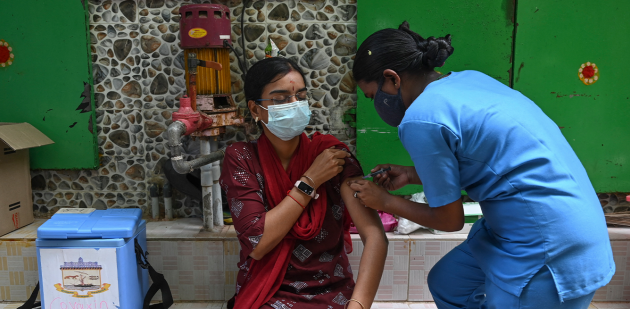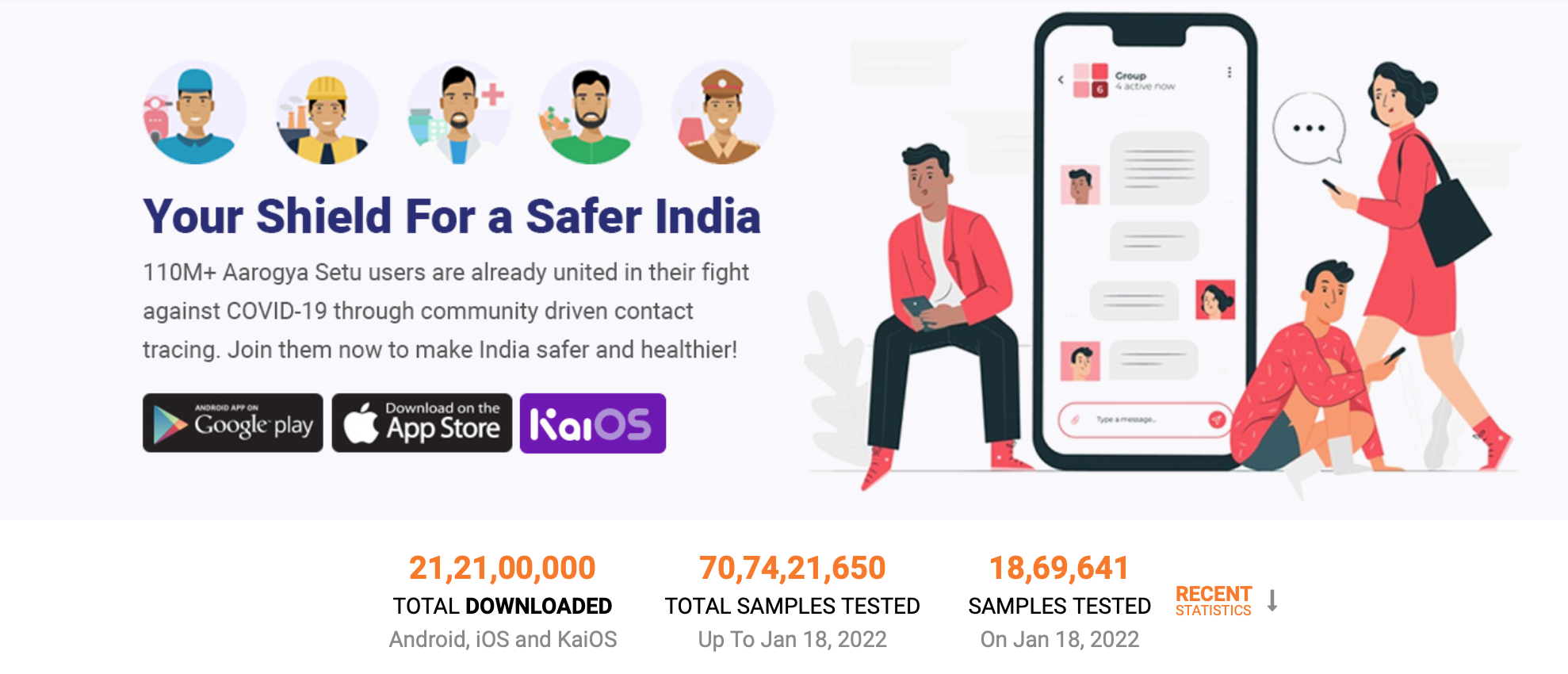Research doesn’t stop at borders. That is why In Vivo covers the latest medical innovations worldwide. Next stop: India.

How Covid-19 empowered India’s healthcare system.
To fight the pandemic, India is focusing on digital health. But solutions have also been found to unify the health system.
India has been hit hard by the coronavirus pandemic. The death toll last November was 460,791. Aside from these dramatic effects, Covid-19 has enabled the country to strengthen its health system.
“The virus has been a game-changer,” says Swetha Suresh, head of innovation and startup partnerships at Swissnex in India. “In particular, it has created and accelerated the transition to digital health.”

In August 2020, the National Digital Health Mission was launched to improve the health system and integrate more digital tools, such as electronic personal health records. The organisation also aims to unify the patient care network by creating a single registry of all health facilities.
Already downloaded more than 205 million times, the Aarogya Setu app reflects this digital progress in the health sector. To combat the spread of Covid-19, the app tracks the user’s location. If the individual comes into contact with someone who is Covid-positive, the application informs the user and immediately sets up a medical appointment. The pandemic has also led to the development of vaccine logistics management solutions. Emvolio is a portable refrigeration unit specially developed for Covid-19 vaccines. The system guarantees precise temperature maintenance, without risk of leaks, for up to 12 hours.
Covid-19 has also enabled India to create solutions at home. “Until now, India has been dependent on imports. But that’s changing. Nocca Robotics created a world-class ventilator in just 90 days.” The pandemic has also had an impact on the development of telemedicine in India. The hospital group Fortis Healthcare has launched remote consultations at 23 centres. /
STUDY | Over the past two decades, more than 1 million Indians have died from snake bites, according to a WHO study published last year. India is one of the countries with the most snake bites and accounts for almost half the total number of annual deaths worldwide, totalling 100,000 cases. The main culprit species are the Russell’s viper, the common krait and the cobra. The WHO’s objective is to strengthen prevention in the country and halve the number of victims of this scourge. The reptiles are mainly found in low-lying areas where intensive farming is practised. There are methods to limit the risk of bites, such as wearing rubber boots and gloves, or using a torch at night to keep them away. However, people must have access to them.
The estimated amount of India’s total medical device exports in five years, according to India’s National Investment Promotion and Facilitation Agency.
This represents considerable growth for a market currently estimated at $10 billion. To achieve that, the country is currently developing four industrial parks dedicated to the manufacture of medical devices. This measure also aims to anticipate the need for healthcare devices within the country due to India’s ageing population.
PROGRESS | Tamil Nadu is on its way to becoming the first Indian state to ban heterosexual conversion therapy. While the practice is still extremely common in hospitals and religious institutions across the country, the Madras High Court in the state of Tamil Nadu issued a judgement in June 2021, strongly condemning such therapies, The Indian Express reports. Based on the case of two young women harassed by their parents for being in a relationship, the Madras High Court issued guidelines to prohibit any attempt to medically cure or change their sexual orientation. The order states that any professional who engages in such practices would have their licence revoked.